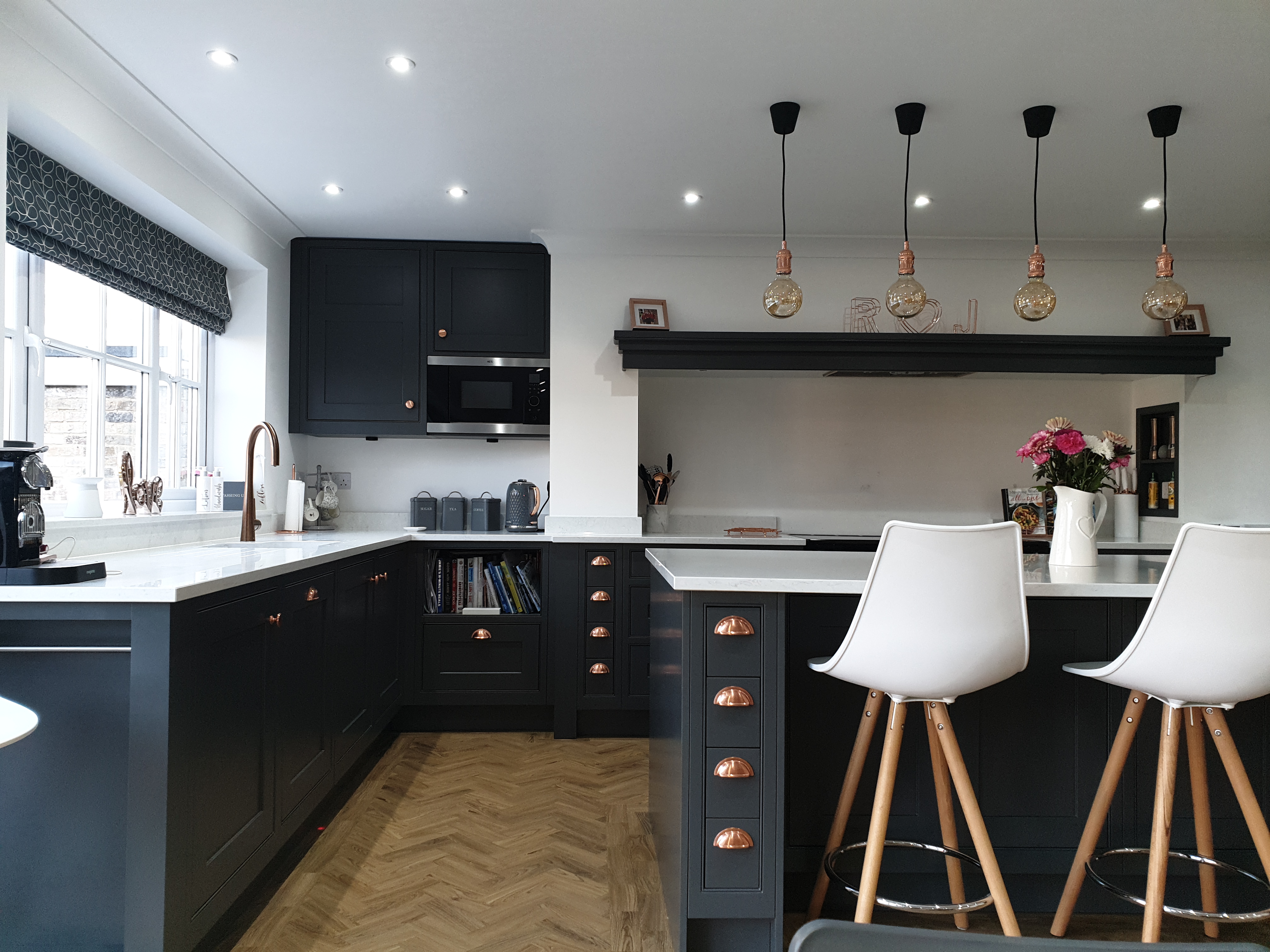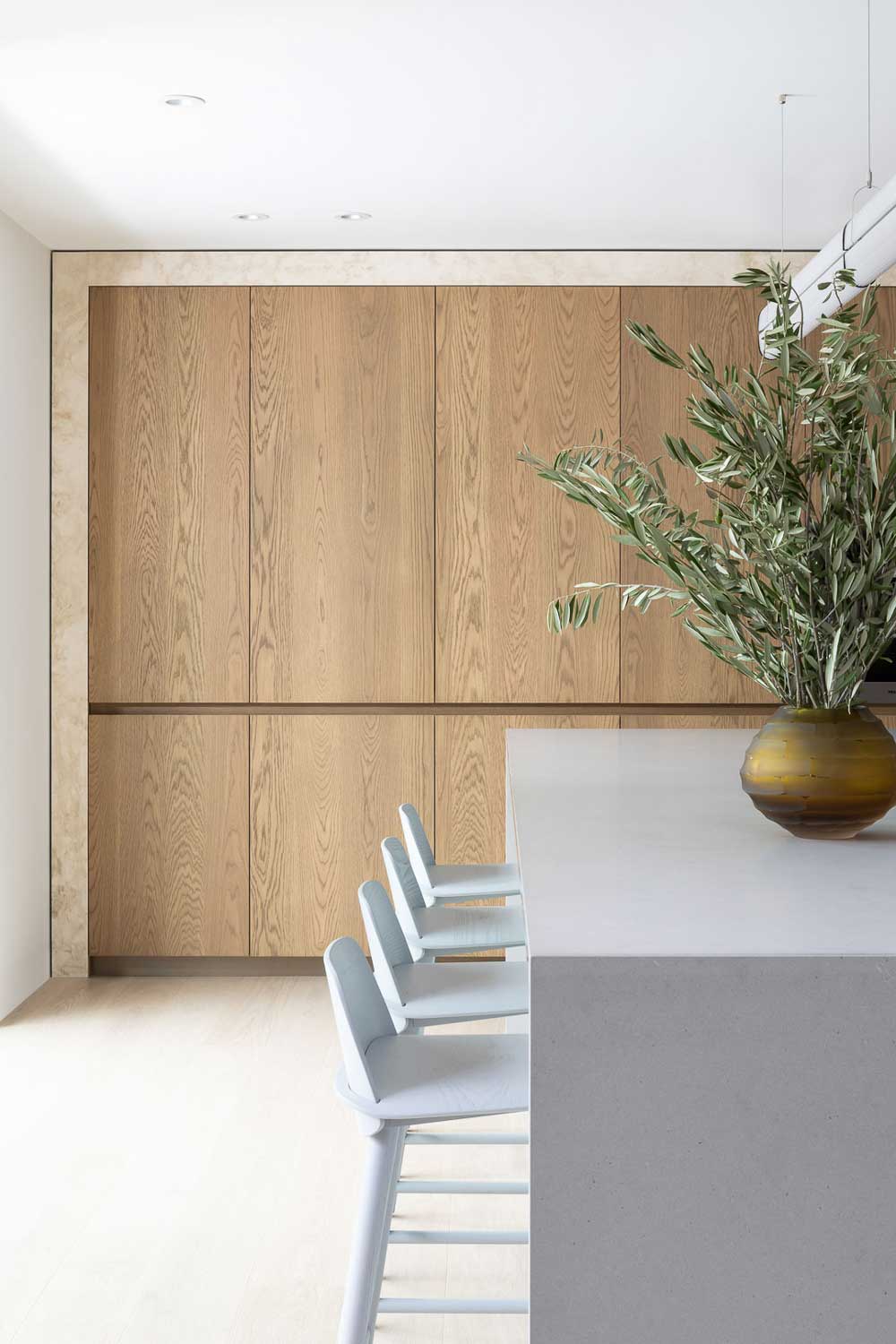How much does a quartz countertop cost? Ballpark figures for 2022 from those in the know
If you're planning your kitchen, you might be wondering how much does a quartz countertop cost? Here's what you need to know


Just how much does a quartz countertop cost? Quartz has become the new standard for kitchen countertops for good reason. It's durable, sturdy and beautiful; it's stain-resistant, doesn't scratch and comes in a huge variety of styles and colors.
However, quartz isn't necessarily a budget option. It's a premium product, and its price reflects it. Quartz isn't in the same price bracket as the likes of laminate, for example, while you won't see much difference in cost for its kitchen countertop competitors like granite and marble.
But, before you can begin to plan your kitchen, you need to be able to budget, so knowing how much your countertop could cost is important. We say could as the price of quartz is determined by a variety of considerations. Here, the experts lay out what you need to know.
How much does a quartz countertop cost per square foot?
'The cost of quartz will vary quite a lot,' says Bob Bakes, co-founder and head of design at Bakes & Kropp, 'between $100-$200 dollars per square foot installed, depending on where you buy it.'
The difference in cost will largely be done to quality. 'A more expensive slab will deliver richer colors and textures, but generally speaking, quartz is a moderately-priced material that can offer a great cost-effective solution,' Bob says. 'The quality of finishes has improved immensely over the years, giving designers more options than ever.'
There are other countertop considerations that will affect how much your kitchen costs, too.
What factors affect the cost of quartz worktops?
The cost may vary for a number of reasons. Thickness is one consideration. 'In general, the thicker that a slab of quartz is, the more expensive it’s going to be,' says Thomas Vibe, managing partner of Toronto-based Stone Wizards. Standard thicknesses range from around 0.75" to 1.2" for quartz countertops.
The Livingetc newsletters are your inside source for what’s shaping interiors now - and what’s next. Discover trend forecasts, smart style ideas, and curated shopping inspiration that brings design to life. Subscribe today and stay ahead of the curve.
'Fabrication fees will also impact pricing by a factor of almost 50%,' says Bob from Bakes & Kropp. If, for example, your kitchen layout sees countertops run around corners, this will require more cuts. Likewise, if it depends on how (and how many) appliances and sinks are set into the countertop, requiring large cuts.
The profile of your countertop edge is another factor. The more exposed edges you have, the more work that fabricators have to do. Likewise, simple profiles are likely to cost a lot less than dropped edge profiles.
'A more sustainably-sourced slab will also be more expensive, but for many people it is important to have this greater awareness of the environment,' adds Bob. 'Depending on where the quartz is sourced, shipping costs can inflate pricing.'
Do you have to buy a full slab of quartz?
Typically, yes. 'In the rare case that the supplier and fabricator are the same party, you are more likely to get material priced by square foot,' says Bob. 'More often, however, the fabricator is purchasing material to sell in full slabs.'
If you're working with a kitchen designer, they may be able to create a space that uses quartz efficiently, and ensures little waste.
The size of a slab may depend on your supplier too. Caesarstone, for example, has a standard size and a jumbo size slab, which may give you a little more flexibility in your design.

Is quartz cheaper than granite and marble?
Yes and no. Both granite and marble are comparable in terms of their average cost. Yet, at the higher end of the scale, you may find granites and marbles that cost over $270 per square foot, for more unusual styles and designs.
What's the difference between quartz and quartzite?
One important thing to consider or know about is the subtle difference between quartzite and quartz. Many people even use the names interchangeably, even though they both are quite different, with their pros and cons. While quartz is a man-made material (with 90 percent ground quartz, and 10 percent mixed cocktail of resins), quartzite is a natural stone, quarried just like marble, limestone, or soapstone.
Since quartzite is natural, it has infinite variations in color and pattern, so no two slabs look the same. On the other hand, quartz simply replicates the distinct characteristics of a natural material, with veining that looks as good as real. But since this is an engineered material, its design can be controlled easily, giving your kitchen or bathroom a uniform look and ensuring a low maintenance home.
Also, a quartz countertop will turn out to be cheaper than quartzite, both in terms of its slabs and installation.

Aditi Sharma Maheshwari started her career at The Address (The Times of India), a tabloid on interiors and art. She wrote profiles of Indian artists, designers, and architects, and covered inspiring houses and commercial properties. After four years, she moved to ELLE DECOR as a senior features writer, where she contributed to the magazine and website, and also worked alongside the events team on India Design ID — the brand’s 10-day, annual design show. She wrote across topics: from designer interviews, and house tours, to new product launches, shopping pages, and reviews. After three years, she was hired as the senior editor at Houzz. The website content focused on practical advice on decorating the home and making design feel more approachable. She created fresh series on budget buys, design hacks, and DIYs, all backed with expert advice. Equipped with sizable knowledge of the industry and with a good network, she moved to Architectural Digest (Conde Nast) as the digital editor. The publication's focus was on high-end design, and her content highlighted A-listers, starchitects, and high-concept products, all customized for an audience that loves and invests in luxury. After a two-year stint, she moved to the UK and was hired at Livingetc as a design editor. She now freelances for a variety of interiors publications.